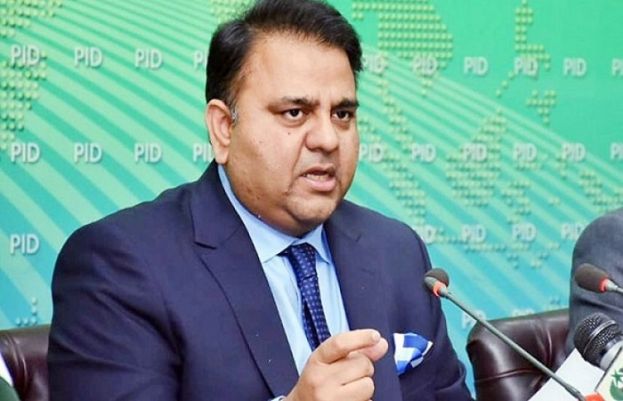
"You see that two extremist regimes have cropped up on right and left of Pakistan. On one side there is Afghanistan where the Taliban have arrived. We want to fully help the Afghan people.
"But saying that women can't travel alone or go to schools and colleges — this kind of retrogressive thinking is a danger for Pakistan," the information minister said, while addressing a ceremony in Islamabad.
He added that a similar Hindu extremist mindset was rising in India so the Pakistani state's "biggest" and "most important" fight was against these "two extremist thoughts".
"We have had failures and successes but till now Pakistan is that bright hope in this region which while remaining amid these extremes can emerge out from them."
The information minister's comments come after Afghanistan's Taliban authorities said on Sunday that women seeking to travel longer distances should not be offered transport unless they are accompanied by a close male relative.
The guidance, issued by the Ministry for the Promotion of Virtue and Prevention of Vice, also called on all vehicle owners to offer rides only to those women wearing hijabs.
The guidance, circulated on social media networks, came weeks after the ministry asked Afghanistan's television channels to stop showing dramas and soap operas featuring women actors. The ministry had also called on women TV journalists to wear hijabs while presenting.
Since taking power in August, the Taliban have imposed various restrictions on women and girls, despite pledging a softer rule compared with their first stint in power in the 1990s.
In several provinces, local Taliban authorities have been persuaded to reopen schools — but many girls still remain cut off from secondary education.
During his address today, Chaudhry said that Quaid-i-Azam Mohammad Ali Jinnah and the leaders of the Pakistan movement had foreseen that the leadership of India's Hindu majority would be coopted by people who would "make life difficult for minorities".
Pointing to violence committed against minorities in India, he contrasted the response to what happened in the aftermath of the Sialkot lynching on December 3.
"You saw the whole of Pakistan was united and condemned that incident. This is happening every day in India with Muslims and no one is bothered."
He said the reason for making the nation-state of Pakistan was for a place where Muslims could have a majority where their rights would be preserved and they would not be hostage to a majority. Chaudhry stressed that Pakistan's purpose was "preserving minority rights and safeguarding them".
"Our real challenge is how to reclaim Quaid-i-Azam Mohammad Ali Jinnah's Pakistan."
The information minister said that confusion about what the founder wanted for Pakistan was present in the state itself. Chaudhry said Jinnah had defined his vision in his three addresses to the Constituent Assembly, armed forces and the bureaucracy.
"This confusion should be completely dispelled that the Quaid-i-Azam wanted a religious state. He never saw Pakistan as a religious country and all these people who today on his name are fooling the people that the meaning of an Islamic country was a religious country — this was entirely not the case."
He said his lifestyle was at odds with people who used his name today and wanted to make "Pakistan a backward country".
Chaudhry said Jinnah had clarified the role of minorities and that the state would have no business to interfere in religious matters.
"After that, a great retrogressive [thinking] has come and we see Pakistan has declined."
He said the movement for Pakistan was not led by accomplished religious figures and scholars of the time. Instead, Jinnah and Allama Iqbal had talked about a political theory and politically interpreted Islam that there should be a country where Muslims and minorities could live where a "brutal majority" could not target them.
"This fight is very important for Pakistan's survival and only by winning it can we or any other country move forward."
The information minister once again pointed to the decline in India under Prime Minister Narendra Modi's government which he said was "spreading extremism in the name of a religious majority".
Chaudhry said a movement was needed to effectively propagate Jinnah's message and understanding of Pakistan to the common people.
from latest-news - SUCH TV https://ift.tt/3mD7WZk

0 Comments